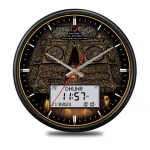Blog
The Significance of the Azan in Islam: A Call to Prayer and Faith

The Azan (also spelled Adhan) is a profound and deeply significant part of Islamic tradition. This call to prayer is not just a reminder for Muslims to perform their daily prayers, but it is a beautiful expression of faith that holds cultural, spiritual, and historical importance. In this blog post, we will explore the meaning, purpose, and beauty of the Azan, and why it remains an integral part of Muslim life.
What is the Azan?
The Azan is the Islamic call to prayer, recited by a muezzin (the person who calls the Azan) from a mosque’s minaret or loudspeakers. It is announced five times a day before each of the five daily prayers (Salah). The words of the Azan are simple yet powerful, calling Muslims to abandon worldly activities and turn their focus to worship and submission to Allah (God).
The Words of the Azan
The Azan is a call to remind Muslims of the importance of prayer, and its words are rich in spiritual meaning:
- Allahu Akbar (الله أكبر) – “Allah is the Greatest”
- Ashhadu an la ilaha illa Allah (أشهد أن لا إله إلا الله) – “I bear witness that there is no god but Allah”
- Ashhadu anna Muhammadur Rasool Allah (أشهد أن محمدًا رسول الله) – “I bear witness that Muhammad is the Messenger of Allah”
- Hayya ‘ala-s-Salah (حي على الصلاة) – “Hasten to the prayer”
- Hayya ‘ala-l-Falah (حي على الفلاح) – “Hasten to success”
- Allahu Akbar (الله أكبر) – “Allah is the Greatest”
- La ilaha illa Allah (لا إله إلا الله) – “There is no god but Allah”
These words remind us of Allah’s greatness, the central role of Muhammad (PBUH) in Islam, and the importance of prayer as a means of spiritual success.
The Purpose of the Azan
The primary purpose of the Azan is to summon Muslims to their daily prayers, ensuring that they remember Allah throughout the day. It serves as a reminder to pause and reflect, offering a spiritual break from daily routines and worldly distractions. Each call echoes a sense of community, as Muslims around the world stop what they are doing and unite in prayer.
In addition, the Azan marks the beginning of the prayer time, giving Muslims a clear cue for when it’s time to prepare for Salah. It’s not just a reminder for individuals; it fosters a collective experience of worship that binds the Muslim community together.
The Spiritual and Cultural Significance
The Azan has a unique spiritual and emotional impact on Muslims. The melodious and rhythmic recitation of the Azan is known to stir a deep sense of connection with Allah, often evoking feelings of peace, tranquility, and devotion. In many Muslim-majority countries, the sound of the Azan fills the air at the appointed times, creating an atmosphere that fosters reflection and devotion.
On a cultural level, the Azan is a significant part of the daily life in Muslim communities. It is heard from mosques and homes, reminding people that their faith is central to every moment of their day. In many places, the Azan has become an inseparable aspect of the cultural fabric, a living testament to the devotion of Muslims worldwide.
The Modern Azan: Technology and Innovation
In today’s world, technology has transformed how the Azan is delivered. While traditionally announced from a mosque’s minaret, now digital Azan clocks and smartphones have made it easier for Muslims to hear the Azan at any time and from anywhere. These devices can be programmed to play the Athan sounds at the correct prayer times, providing convenience for those living in places where the call to prayer might not be heard audibly.
Devices like the AL-FATIHA Azan Clock bring the Azan into your home with accuracy, beautiful sounds, and easy-to-use features. Whether you’re at home, in the office, or on the go, you can be reminded of your prayer times and connect with your faith.
Conclusion
The Azan is much more than a call to prayer—it is a reminder of our spiritual purpose, a celebration of Allah’s greatness, and a moment for Muslims to come together in worship. Its significance is timeless, transcending borders and cultures, uniting Muslims across the globe. Whether heard in the streets, mosques, or from a digital Azan clock, the Azan will always remain an essential part of Islamic life, calling believers to connect with their Creator five times a day.

